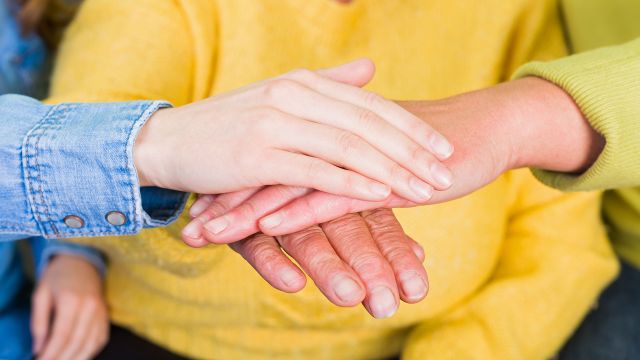Whether it is a spouse, parent, sibling, close relative or even a close friend that has been diagnosed, being the caregiver for a loved one with cancer comes with a number of challenges. There is the broad range of emotions that are normal when a loved one is sick. There are decisions about medical care and treatment. There are medical bills, calls to insurance providers and keeping track of paperwork. There are the day-to-day responsibilities of work and managing a household that must continue even as a schedule becomes crowded with added responsibilities.
Below are some important questions to keep in mind when making decisions about who should be a caregiver.
What type of care is needed?
Almost everyone diagnosed with cancer is going to need some amount of care from the people around them. But the type, amount and duration of care will vary from person to person. Though you may not be able to plan for every detail, it is important to establish what your loved one needs.
Who will be providing what care?
Not every member of the family will be suited for every caregiving task, which is why it is important for everyone involved to be honest about what they are capable of, what they are willing to do to help and how caregiving will impact their lives. Even if someone is not up to tasks like managing treatment side effects or taking your loved one to appointments, there are lots of other ways to help out—even simple tasks like grocery shopping, household chores or keeping other family members updated can make things easier for a caregiver or a patient. If it is financially feasible, families may also consider the possibility of home healthcare services.
How does the patient feel about caregiving?
It is important for the patient to feel involved, to make sure they are comfortable with the decisions being made and to understand how they feel about caregiving. Some people may feel guilty relying on others for help or may be frustrated by the fact that they need help. These and many other emotional responses are perfectly normal.
Who can medical information be shared with?
A person’s medical information is protected by strict privacy laws, and in order for that information to be shared with a family member, the patient must give written consent that allows medical information to be shared with specific people. Having this consent may be necessary to performing many caregiving tasks. Your loved one’s healthcare providers can explain to you what type of documentation is required and walk you through the process.
What is the financial situation?
Unfortunately, treating a serious medical condition like cancer can be expensive, and it is important to understand what finances are available, what insurance will cover and what treatment will cost.
Support for caregivers
Most hospitals and cancer treatment centers have social workers available that can work with patients and family members who are in the process of making the decisions described above.
If you’ve been designated the primary caregiver for a person with cancer, you cannot be expected to do everything alone, and it’s important to recognize when it is time to ask for help. While caring for a loved one can be a rewarding experience, it can be stressful, emotionally difficult and can take a toll on a person’s health and quality of life. “Caregiver burnout” is the term used to describe the physical, emotional and mental fatigue brought on by the stress of being a caregiver.
There are also support groups for both cancer patients and caregivers, which can help you manage the complicated mix of emotions that often accompany living with cancer. Support groups can be found through your local hospitals, through nonprofit organizations and online.





